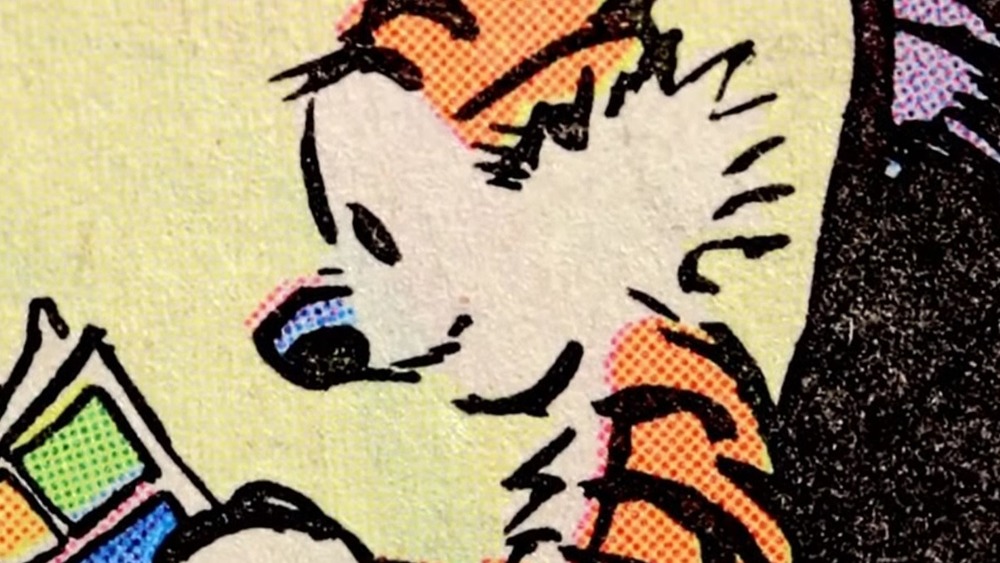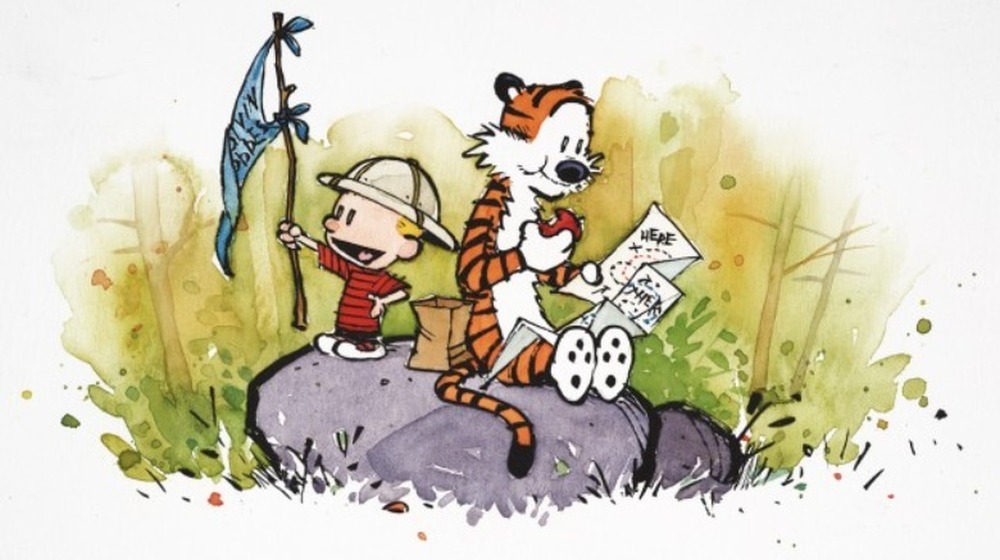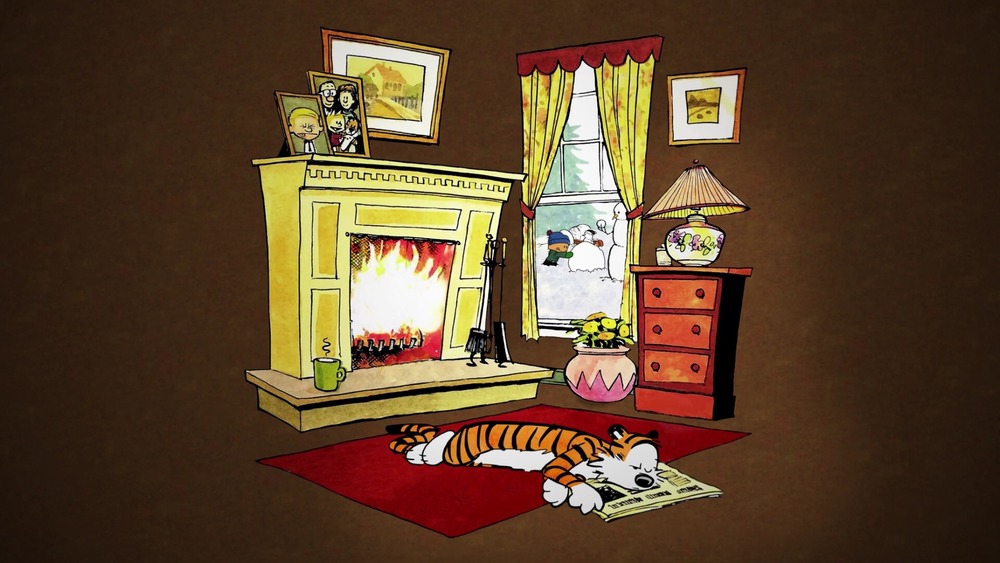You'll Never See A Calvin And Hobbes Animated Series. Here's Why
Nostalgia is a powerful force, and it fuels the desire to see comic strips you loved as a kid given new life on the small or big screen. Garfield, for example, turned from a successful comic strip into an equally successful '80s cartoon, and the award-winning Dilbert comic turned into a similarly award-winning animated series. Even more recent comic strips such as The Boondocks have been successfully translated into beloved animated shows, so why hasn't the arguable king of comic strips, Calvin and Hobbes, joined the TV party?
For those who've never heard of the property, Calvin and Hobbes, created by Bill Watterson, was a syndicated strip of cartoons featuring the titular Calvin, a mischievous and imaginative boy, and Hobbes, his stuffed tiger who may or may not have been real. Throughout the series, the two went on misadventures, tried to get out of homework, and discussed the meaning of existence on a toboggan. Calvin and Hobbes is widely regarded as "the last great newspaper comic," and its iconic game of Calvinball deserves to be a real sport.
Yet despite a ton of popularity, Calvin and Hobbes never made the jump from paper to program, and it never will because doing so would betray the spirit of the series.
Bill Watterson never wanted to merchandise the franchise
If you ever visited a college football game, odds are you ran across a street vendor selling merchandise that featured Calvin urinating on the competition. Or perhaps you found a fan-created animated interpretation of a classic Calvin and Hobbes strip on YouTube. All of these are unofficial and unlicensed because Bill Watterson never envisioned Calvin and Hobbes as more than a comic.
In Watterson's own words from The Calvin and Hobbes Tenth Anniversary Book, he wanted the comic to remain a "low-tech, one-man operation" because that's the way he liked it. According to Watterson, once a comic evolves past paper, whether it becomes a cartoon or toys, it requires licensing, and licensing requires staff assistants. When this happens, the cartoonist switches jobs to overseer who "[delegates] responsibilities" for "things he does not create." Watterson would rather "write every word, draw every line, color every Sunday strip, and paint every book illustration" himself than "run a corporate empire."
However, had Watterson been more open to the corporate life, he would have found no shortage of talented collaborators willing to share his vision. Steven Spielberg and George Lucas reportedly reached out to him, but Watterson declined (via Mental Floss). What could have been.
Bill Watterson thought Calvin and Hobbes wouldn't work as a cartoon
While television and comic strips are both forms of visual media, comparing them is like apples and oranges. What works for a show might not work for a Sunday strip cartoon and vice versa. This isn't always true, but it was a constant fear of Bill Watterson's.
During an interview with Mental Floss, Watterson revealed that a major element behind his lack of cartoon translation interest stemmed from the inevitable fallout source material receives. According to Watterson, whenever you compare a film to the novel it is based on, the novel "gets bludgeoned." This is due to the nature of the beast in Watterson's eyes: "It's inevitable, because different media have different strengths and needs, and when you make a movie, the movie's needs get served. As a comic strip, Calvin and Hobbes works exactly the way I intended it to."
Watterson was confident that somehow, somewhere, the soul of Calvin and Hobbes would get lost in translation. So he decided to never try. Admittedly, Bill Watterson has the utmost confidence in Pixar's ability to produce amazing, beloved movies. But a Pixar movie based on Calvin and Hobbes would be more faithful to the movie media than Calvin and Hobbes' paper origins.


